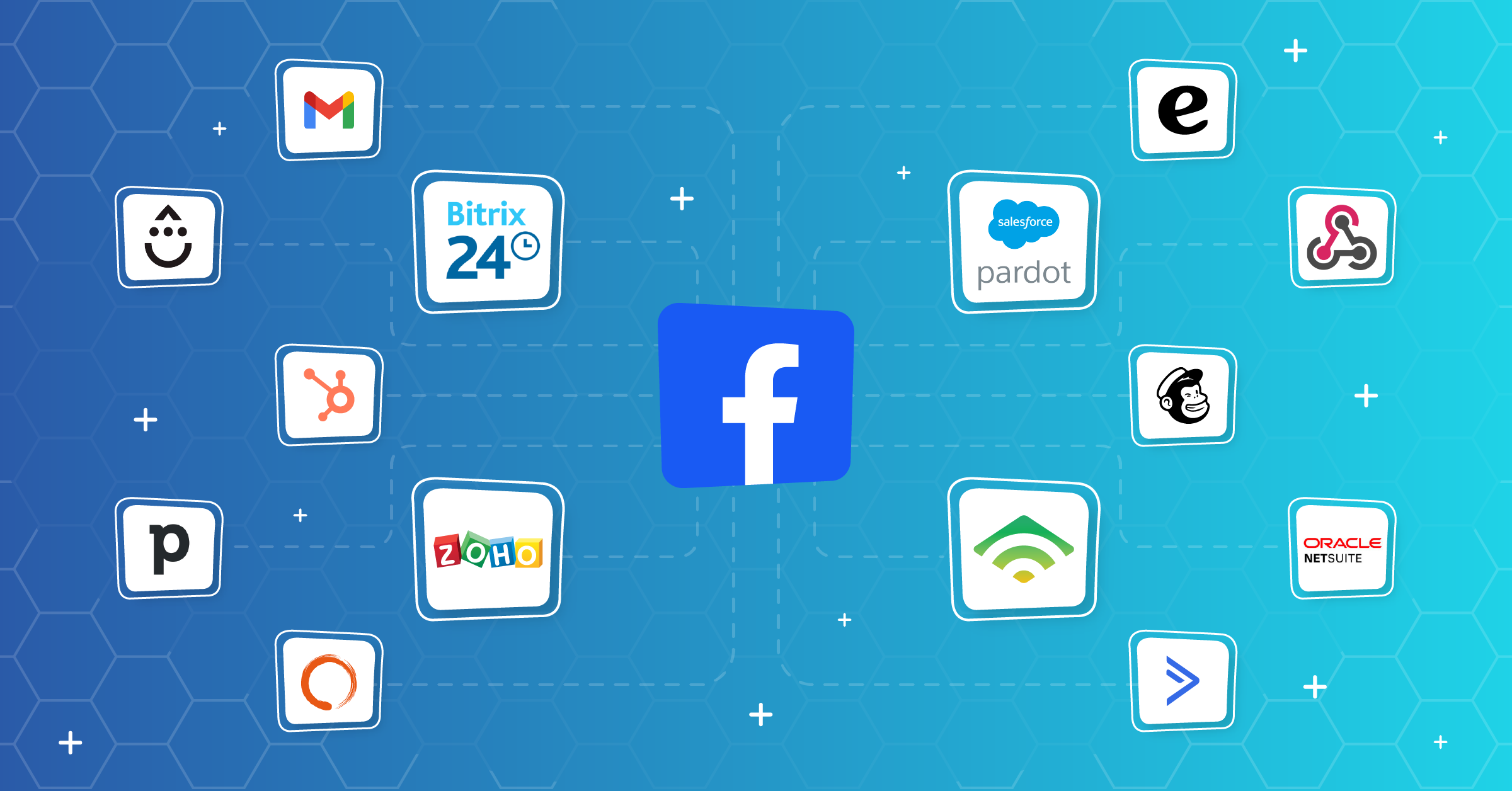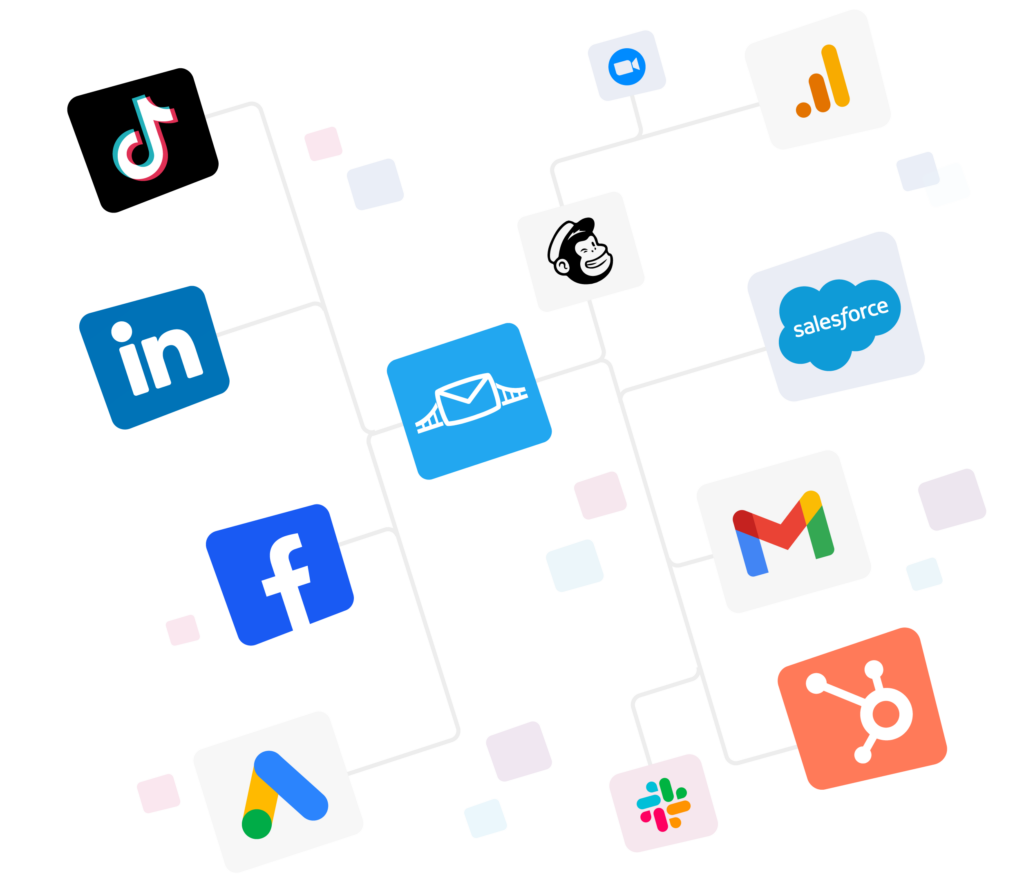
Customer relationship management isn’t a new concept. In fact, CRM as we know it dates back to the 1980s with database management. By the 1990s, software that could help businesses manage customer data entered the market. Despite this, CRM trends are constantly evolving and this year is set to see some of the biggest developments yet.
Here we’ll look at what the future of CRM will bring, including new trends, guaranteed to fuel your business growth and stay ahead of the competition.
What are the benefits of CRM software for businesses?
A CRM system is a necessary investment for a business serious about managing customer relations well. Businesses have been able to build, maintain, and grow relationships with customers thanks to CRM software and customer data platforms that provide real-time insight into customer behavior. Some of the key CRM benefits are:
- Improved customer service
- Increased customer satisfaction
- Higher customer retention
- Stronger reputation
- More value from existing customers
- Reduced costs associated with servicing customers
- More efficient data management
- Improved reporting and analytics
- More in-depth customer segmentation
- Better sales targeting and predictions
A CRM system helps your sales team understand their customers and as customer trends change, CRM trends will follow.
CRM trends to boost your business
The CRM industry has been going through a phase of rapid growth as businesses seek to improve their relationship with customers. Here we’ll look at some of the latest trends in CRM to watch out for.
1. AI
In business, we’re seeing the benefits of AI integrations across many areas. So it’s unsurprising that AI is set to become one of the key CRM industry trends.
AI can be used to enhance, automate, or improve current systems. In CRM systems, in particular, AI-powered chatbots, subject line suggestions in automated emails, and big data analysis will be among the CRM marketing trends proving extremely beneficial for content teams.
The future of AI in CRM is looking even more promising with experts predicting advancements such as:
- Data entry: We will soon see sales and marketing teams asking CRM systems to add contacts along with their email address, and create reminders to send a message.
- Advanced email personalization: Soon, AI will be able to scan news, web, and social media platforms to personalize emails.
- Sales forecasting: AI can already help businesses manage and analyze big data. This will become an even more powerful tool delivering predictive analytics and useful data on customer buying habits. This will help marketing teams develop more powerful marketing campaigns.
- Communication: It’s believed AI will soon use NLP (Natural language processing) to enable employees and customers to engage with sophisticated AI systems like chatbots. For example, an employee could ask ‘What can I do to engage this lead?’ and AI will provide an answer based on the customer’s behavior and analytics. This will also improve CRM contact center integrations for businesses by utilizing an omnichannel approach.

2. CRM apps for smartphones
Whilst CRM apps for mobiles already exist, the demand is set to grow. This will force CRM developers who don’t offer a smartphone app, to jump on board with the trend. Having the ability to update systems on the go is becoming a prerequisite for sales professionals who need to stay efficient whilst travelling to meet with clients.
Improved mobile features will also form one of the latest trends in cloud-based CRM solutions, so apps function in the same way as their desktop counterparts. It will be more common to see constant updates that improve existing features and deliver new ones.
3. Industry-specific CRMs
The demand for industry-specific CRM tools (or “verticalization”, as it’s known) is among the CRM software trends set to skyrocket in the next 12 months. CRM systems designed for specific industries such as finance, healthcare, or packaged goods come with built-in features. These include workflows, data models, and app integrations that the industry needs. For example, finance-focused CRMs enable businesses to better manage client portfolios and even find proprietary investment opportunities through advanced data segmentation and analytics tools. This growing trend highlights how tailored solutions are reshaping the CRM landscape. We’ll likely see more companies like Salesforce offering verticalization.

Regulated industries such as real estate or the financial industry already benefit from pre-packaged compliance infrastructures too. Regulated industries such as financial services benefit from pre-packaged compliance infrastructures within CRM systems. This streamlined approach is essential for ensuring adherence to regulatory standards. While finance-focused CRMs help in managing portfolios effectively, incorporating compliance software for investment managers ensures that every transaction meets pre- and post-trade compliance checks, vital for maintaining integrity and preventing violations. Similarly, tailored solutions are available for field service industries. For example, pest control software by Briostack offers features like automated scheduling, optimized route planning, and efficient customer management, helping businesses save time, reduce costs, and stay organized. In the past, bespoke features like these would have required expensive customization. This opens up more complex features to smaller businesses and will push demand for industry CRMs further.
Learn more about industry-specific CRM software:
- The complete guide to automotive CRM
- How to choose the best CRM for real estate agents
- The best enterprise CRMs to try
4. Increased accessibility
When CRM technology first hit the market, it was expensive, and not many small businesses could access these solutions. However, with marketing trends shifting to becoming more data-driven, businesses need to manage their customer queries, data and relations – no matter their size.
Whilst small business owners have been able to access CRM systems for a while now, Solopreneurs and freelancers have benefitted from many of the features of CRMs, such as contact tracking and invoicing, so it’s likely we’ll see CRM systems emerging specifically for this group, meaning they can up their marketing efforts.
5. Integrations to automate CRM workflows
Workflow automation through CRM integrations allows businesses to use fewer tools, streamlining processes. LeadsBridge integrations with Google and your social media channels will help to automate CRM workflows by integrating various CRM software solutions with advertising tools to form part of your sales pipeline such as:
- Advertising tools for lead generation: For example, ads via Facebook, TikTok, LinkedIn lead generation forms, and Google lead forms extensions. By connecting these tools to your CRM, you’ll be able to sync any new lead with your management platform as soon as they come in, so you can start you follow-up campaigns right away.
- Advertising tools for conversion tracking: This includes Facebook conversions API and LinkedIn conversion API.
- Advertising tools for audience targeting: By connecting your CRM-segmented audiences with Facebook custom audiences, LinkedIn Matched Audiences, and Google Customer Match, you’ll be able to retarget your customers on social media and leverage your first-party data for marketing campaigns automatically.
6. Sustainability
Sustainability is a hot topic that won’t be going away any time soon. Most industries are starting to pick up on this and it’s now among leading CRM trends that will set businesses apart.
With 65% of business leaders ranking sustainability as a top 3 priority, CRM system developers are starting to take notice. CRM systems help businesses segment customers based on their environmental beliefs, which can allow them to target them with specific messaging as well as product or service offerings.
7. Ease of use
CRM systems have not always been known for their ease of implementation and use. They have notoriously included complex features that went unused due to a lack of understanding. Thankfully, we’re now seeing a gradual shift towards simplicity, which is going to make features more accessible and the whole experience more user-friendly.
8. The impact of IoT integration
The Internet of Things is already starting to have an impact on CRM systems. IoT connects billions of internet-enabled devices that transmit and collect data. Technological developments have seen businesses able to integrate IoT data with CRM data and developers are starting to develop IoT integration solutions.
This will be huge for businesses that will benefit from even more valuable insights into customer preferences, which will improve data enrichment, help them serve customers better, and create personalized journeys to improve the customer experience.
9. Improved departmental collaboration
Bringing departments together like sales, marketing, and operations, and improving communication is a key part of a business’s success. Departments working together towards a shared goal can use the CRM to see how other departments play a part in the customer journey. This helps to create a seamless experience for the customer but can also aid decision-making at a higher level.
Final thoughts
CRM systems are an essential part of business. But, as with anything, trends change and it’s important to keep up with them in a competitive market. What’s great to see with many of these emerging CRM trends is that they’re what businesses need. They will improve efficiency, increase accessibility to the tools, and strengthen customer interactions and relations.
Whilst the benefits of aligning your strategies with CRM trends are clear for businesses, customers will also see an improvement in customer service. NLP-enabled chatbots, for instance, will help bridge the gap between customers and businesses, 24/7.
Perhaps, now is the time to assess your current CRM systems to see if an upgrade is due. Discover LeadsBridge CRM integrations today and find out how your business can benefit.



























